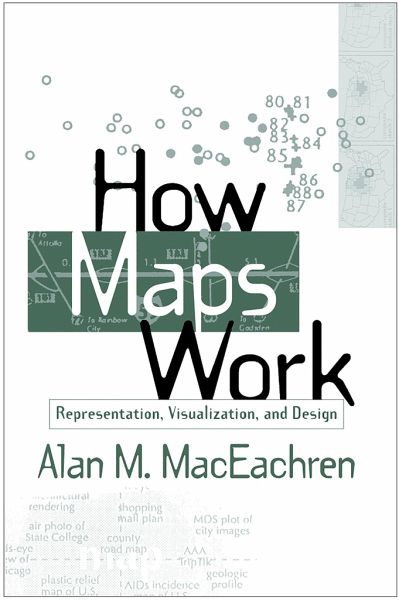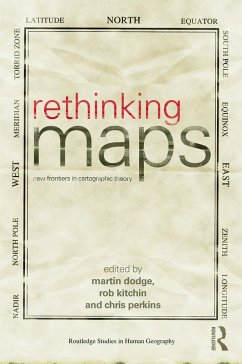
How Maps Work
Representation, Visualization, and Design

PAYBACK Punkte
31 °P sammeln!
Now available in paperback for the first time, this classic work presents a cognitive-semiotic framework for understanding how maps work as powerful, abstract, and synthetic spatial representations. Explored are the ways in which the many representational choices inherent in mapping interact with information processing and knowledge construction, and how the resulting insights can be used to make informed symbolization and design decisions. A new preface to the paperback edition situates the book within the context of contemporary technologies. As the nature of maps continues to evolve, Alan M...
Now available in paperback for the first time, this classic work presents a cognitive-semiotic framework for understanding how maps work as powerful, abstract, and synthetic spatial representations. Explored are the ways in which the many representational choices inherent in mapping interact with information processing and knowledge construction, and how the resulting insights can be used to make informed symbolization and design decisions. A new preface to the paperback edition situates the book within the context of contemporary technologies. As the nature of maps continues to evolve, Alan MacEachren emphasizes the ongoing need to think systematically about the ways people interact with and use spatial information.












